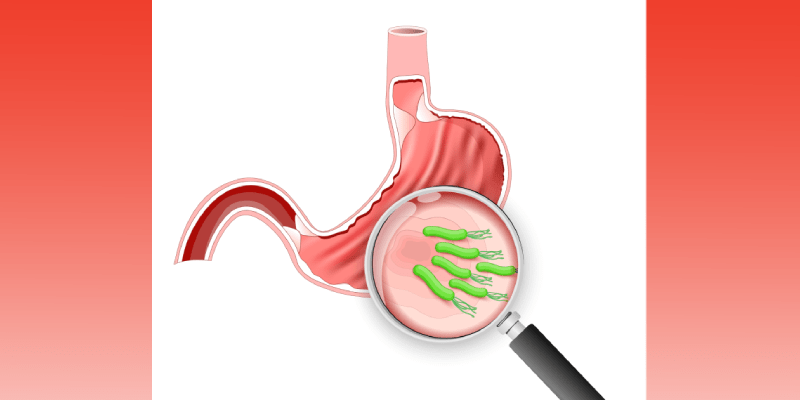
Heliobacter pylori (H pylori), a common bacterium that can infect the stomach, is a strong risk factor for the development of cancer, including gastric and stomach cancers.
New research led by Shailja C. Shah, MD, MPH, analyzed the impact of H pylori infection and treatment on colorectal cancer (CRC) incidence and mortality among US veterans.
Dr. Shah and colleagues conducted a retrospective cohort analysis of adults within the Veterans Health Administration who had been tested for H pylori between 1999 and 2018. The primary outcomes were CRC incidence and mortality.
A total of 812,736 individuals were tested, and 205,178 (25.2%) were positive for H pylori. An H pylori-positive test result was associated with higher rates of CRC incidence and mortality compared with a negative result. Those who tested positive had an 18% (adjusted hazard ratio [aHR], 1.18; 95% CI, 1.12-1.24) higher incident risk and a 12% (aHR, 1.12; 95% CI, 1.03-1.21) higher fatal CRC risk compared with those who tested negative.
Patients who received H pylori treatment also had lower CRC incidence and mortality compared with those who did not receive treatment (absolute risk reduction, 0.23%-0.35%) through a 15-year follow-up. Individuals with an untreated versus a treated H pylori infection had a 23% (aHR, 1.23; 95% CI, 1.13-1.34) and 40% (aHR, 1.40; 95% CI, 1.24-1.58) higher incident and fatal CRC risk, respectively. These results were more pronounced in the analysis restricted to those with nonserologic testing.
Individuals who test positive for H pylori may experience a small but statistically significantly higher rate of CRC incidence and mortality, with untreated individuals at higher risk.







 © 2025 Mashup Media, LLC, a Formedics Property. All Rights Reserved.
© 2025 Mashup Media, LLC, a Formedics Property. All Rights Reserved.